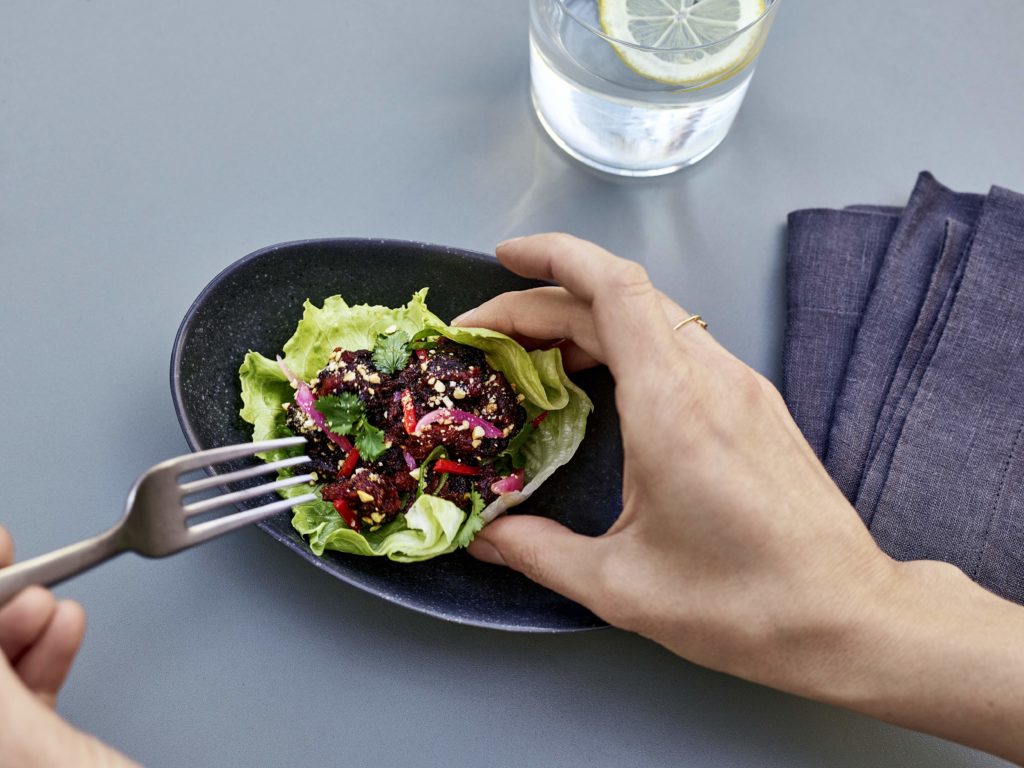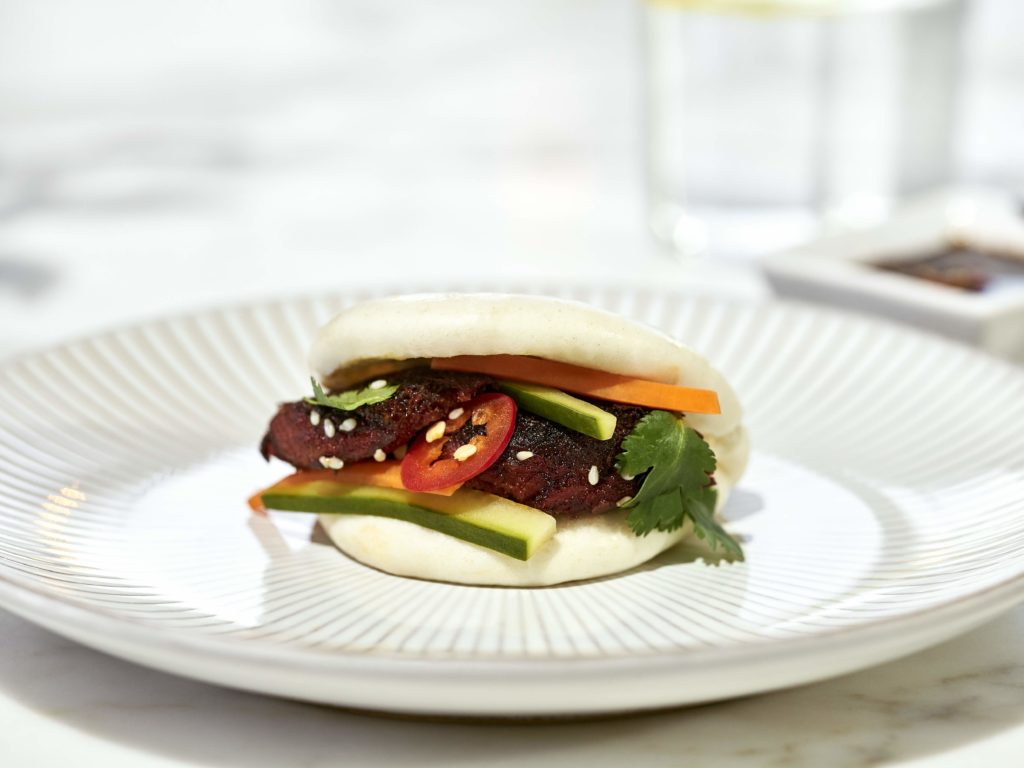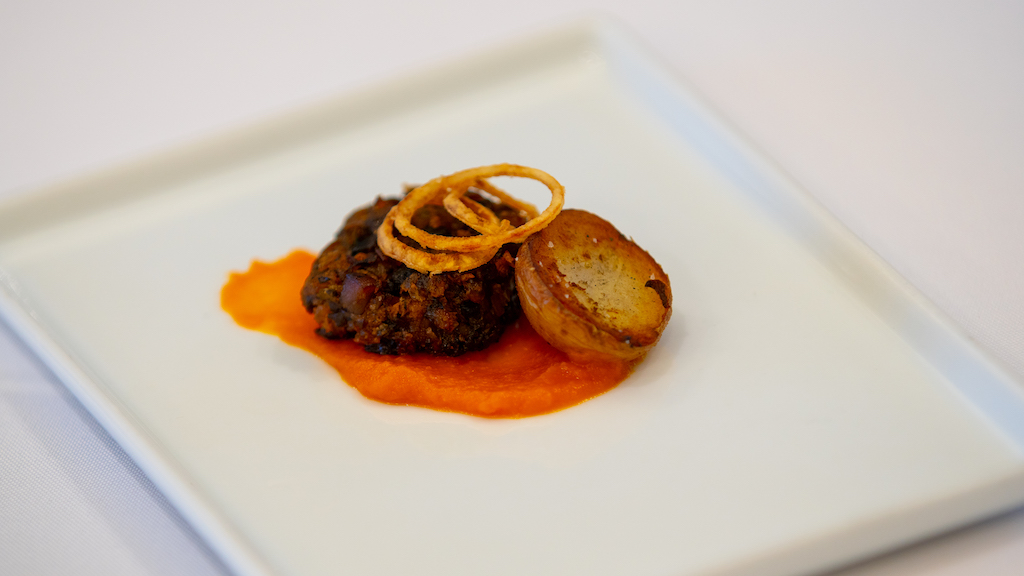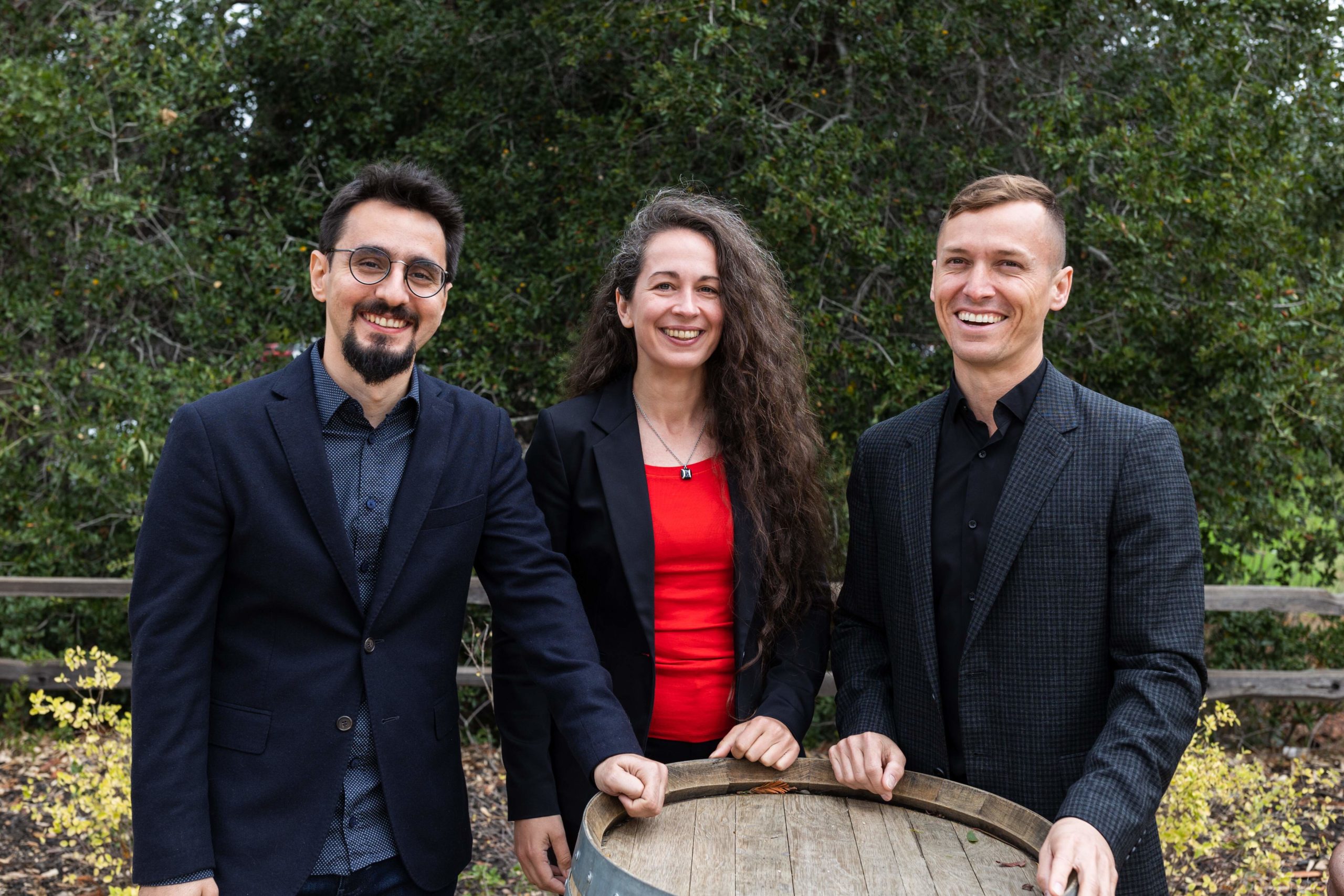4 Mins Read
San Francisco-based startup cultivated meat Orbillion has announced that it projects reaching price parity with conventional meat by 2026, with commodity pricing for beef to follow by 2030. The declaration comes as CEO and co-founder Patricia Bubner is present in Davos, Switzerland, where the World Economic Forum (WEF) is holding its annual meeting. The focus of her presentation will be how they plan to democratize access to delicious and healthful cell-cultured meat to help address food insecurity.
Orbillion claims that it can work faster and cheaper than other cultivated companies. At its first pre-regulatory approval public tasting event, held last year, three types of meat were presented. Orbillion developed four different meats in only four months, leading to estimations that the startup is moving 18x faster than other cultivated meat companies. This is largely attributed to members of the founding team meeting while already working within bioprocessing, thus having a working knowledge of the cultivated methodology.

Laying the foundations for a cultivated market entry
A Y Combinator alumnus, Orbillion is a female-founded biotech focussed on developing multiple heritage meat lines in parallel. To support its multi-variety approach, the startup secured $5 million in seed funding last year, before joining the Alliance for Meat, Poultry and Seafood Innovation (AMPS Innovation). Together with fellow cultivated big hitters, including Blue Nalu and Upside Foods, the collective seeks to nurture consumer acceptance for future products. It also looks to work with stakeholders, to expedite the path to market.
“We are advocates of a wide range of solutions that can help make our food system more sustainable, nutritious, and reliable, and we see cell-cultured meat and alt proteins as an important “and” solution to regenerative agriculture. We all must work together,” Bubner said in a prepared statement. “Realizing the potential of cell-cultured meat means making it accessible. We know from extensive consumer and foodservice research around the globe, that price is key to making that happen. I’m so proud of the team that in less than one year, we’ve reduced the cost of production by 98%. Very eager for what’s ahead.”
Orbillion has developed a unique technological path with: high selectivity of cells, rapid optimization of serum free media for superior cell performance, and high density bioprocesses.
It should be noted that price parity for Orbillion is significantly simpler to reach, as it focusses on high-end and heritage meats which are, traditionally, expensive. Parity with premium meats is the first target, before bringing costs down as production can be scaled further. To date, Orbillion has raised $9.5 million to support its endeavours.

Strengthening the leadership team
As Orbillion plans to launch products in 2023, it has sought to put key leadership figures in place. The most recent appointment is Greg Hiller, a globally recognised expert within the bioprocessing and cell cultivation fields. Hiller joins as an advisor.
“I’m very excited to join the Orbillion team as an Advisor to help push the frontier of what’s possible for cultured meat.” Hiller said in a statement. “I’m hopeful that my skill set of innovative process development methods will further facilitate the development of a highly intensified cell culture process that will make cultured meat scalable, and as a result, accessible to all.”
Orbillion has confirmed that its first commercial product will be cultivated Japanese-bred Wagyu beef. It cites its developments as a potential solution to the increased food insecurity being faced by global populations, in line with food price hikes.

Wading into the Wagyu race
Potentially the only startup to be looking at cultivated Wagyu beef, Orbillion is not alone in developing alternatives to the conventional Japanese heritage meat.
Last month, Hong Kong’s Alt Farm revealed its plans to seek launch 3D printed plant-based Wagyu in 2023. The startup, an offshoot of the Hong Kong University of Science and Technology, has earmarked China and Australia as key markets for its growth. A combination of soy, pea and algae protein is currently being tested, with first prototypes anticipated to debut next year.
Canada’s Top Tier Foods has given the world a taste of vegan Wagyu steak, through its Wamamae Foods subsidiary. Last month, attendees of the TED2022 conference were served the beef alternative, ahead of commercial launch. Full rollout is anticipated for spring this year after a trial launch garnered positive responses from consumers.
All photos by Orbillion.




